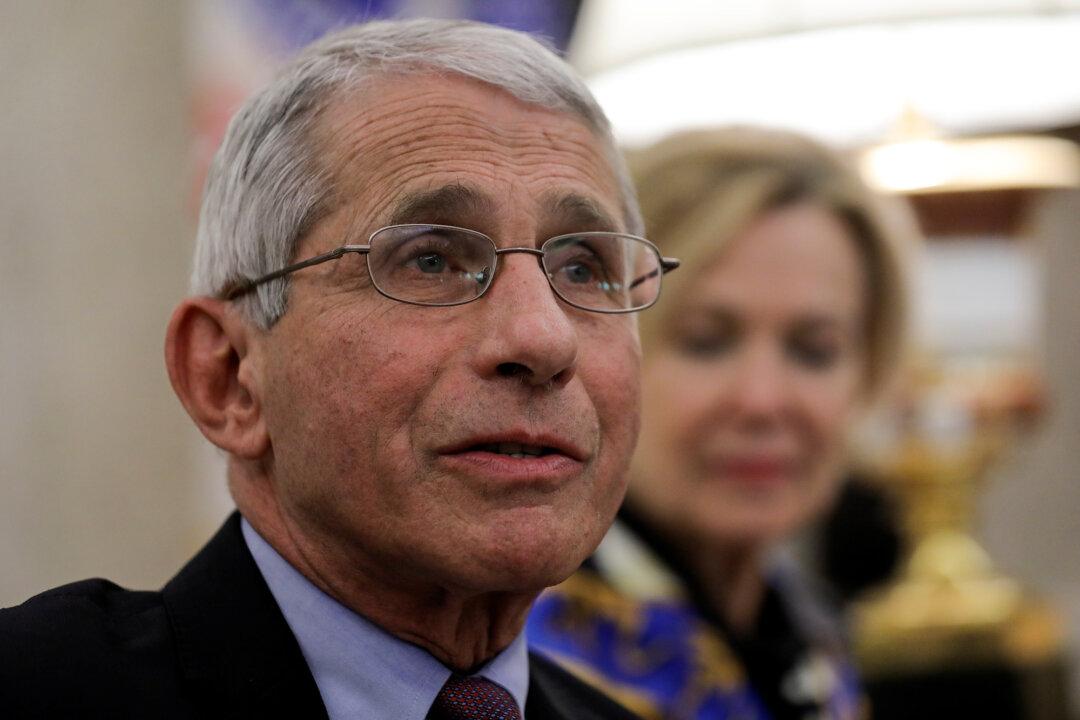Dr. Anthony Fauci, top infectious disease expert and member of the White House Coronavirus Task Force, said Tuesday he hopes to have a vaccine in advanced trials by late fall or early winter.
Fauci told the Senate Health, Education, Labor and Pensions committee by video conference that the government is working on several potential vaccines for COVID-19. He is in self-quarantine after a White House staffer testified positive for the CCP (Chinese Communist Party) virus, the novel coronavirus that emerged from China late last year and causes the respiratory disease.





